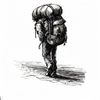- Longevity is misunderstood.
Life is not a contest to see who can rack up the most years circling the sun. Living to 100 is a poor goal if the last 40 years are spent in growing degrees of illness. The goal should be compression of morbidity, that is, putting off age-related decline as long as possible, making its slope more gradual. Diet, friends, exercise, and many other factors all matter immensely, as we learn from centenarian research. And medicine is a factor, but it is well down that causal list for most people. The majority of non-prescription supplements shouldn't even be on the list. People make this stuff too complicated and focus on the wrong objective. - Reality matters.
It's not important how strongly you believe something, how badly you want it to be true, or how many people in your circle think that it's true. It matters what is true. And if we have no way of knowing what is true, then we should be very careful. Because we all want to believe things that make us feel better about ourselves, or that make us feel validated in our beliefs about the world and how it works. But what matters, especially in complex systems like human biology, is what we know to be true. - Good evidence is rare and vital.
We are passionate about good evidence, especially in matters related to health. It is easy to make claims, and much harder than most think to prove causality. The absence of evidence for something does not mean it might work; it means we have no proof it works and should move on. There is a difference. - The gold standard remains RCTs
Showing that something causes something else is, outside trivial cases, among the hardest things in science, which is why science is slow, equivocal, and advances via the death of one bad idea at a time. Strong claims require strong evidence, and the strongest evidence we know is randomized controlled trials (RCTs). Claims made without credible support are fraught, verging on spurious. Sure, some things are obvious, but fewer than we think. - Too much medicine is dangerous.
While we all need doctors now and then, especially for urgent issues, re-assigning our health to the medical systems and its products is a bad idea. Personal responsibility matters, and the medical system, even at its best, is not a provider of cure-alls. - Too little medicine is dangerous.
Many people around the world and across the U.S. don't have good access to doctors, therapies, drugs, and treatments. This can be for reasons, but it can also be fear, ignorance, confusion, or a host of other factors. While too much medicine is a problem, so can be too little. - Social media is a health & wellness disinformation swamp.
The data is clear: People who get more of their health information on social media have crazier and less supported beliefs. Granted, this is true for most domains—sports, politics, etc.—in health, it has real human consequences. It matters what is true, not what a charismatic podcaster says is true. - Movement is a superdrug.
Every study shows it. Movement is a superdrug with vast benefits. The more we move the better we feel, and it shows up in our biomarkers. Move, often with savage purpose, as Howard likes to say. Don't get caught up in steps, time, or intensity, at least at first. Just move. Rediscover the joy of movement, of being a kid whistling along a rolling bike trail and going whoooo at the feel of the wind in your hair. It all starts there. - It's normal to hate exercise.
People talk a lot about how inactive Americans are, but this is true to varying degrees around the world. But shouting about it won't change anything. That we no longer need to walk miles every day is a relatively recent change in evolutionary terms, and evolution hasn't kept up. People who burned calories pointlessly tens of thousands of years ago dropped out of the gene pool. Our ancestors moved with purpose, and we are their progeny. - There are only a few wellness levers that matter.
There are endless podcasts, papers, minor studies, and influencers dedicated to promoting small tweaks that they say will change your life. While they might, most will have a tiny effect, verging on placebos. Their recommendations may not be a bad idea at the margin, most people's needs aren't at the margin. We benefit more from pulling the small number of larger health levers that have the most benefit. Focus on those, not on nano-optimizations. - There is no magic.
This is a neverending voyage. There are no magic foods, magic moves, magic supplements, etc. There is only consistency, discipline, and focus on doing the best you can in a world that wants to make you ill, whether through being sedentary, eating crap foods, ingesting bad ideas, or inhaling bad air. - Our Mission
Our mission is to help people live longer and healthier in a world where all the above things are true. No bro science and no magic, just a focus on simplicity and consistency across all domains of human health and wellness, from the physical, to the mental, to the social and financial. They are all linked, but that doesn't mean it has to be complicated. So, Simplavida.
Our Mission and What We Believe


